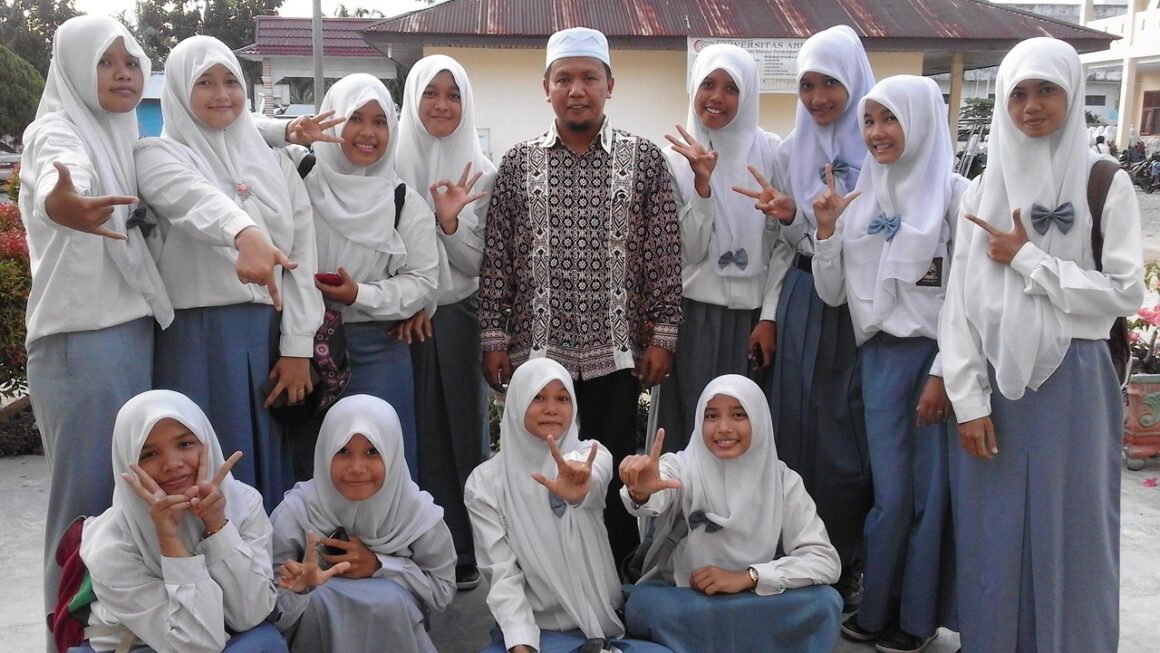Lifelong friendships, the kind that weather storms and celebrate sunshine together, are arguably one of life’s greatest treasures. More than just companions for fun outings, they’re the cornerstones of our support systems, the mirrors reflecting our truest selves, and the anchors that ground us through life’s inevitable ups and downs. But what does it take to cultivate these bonds and keep them thriving across the decades? This article delves into the secrets of forging and maintaining friendships that truly last a lifetime.
The Power of Deep Connection: Building the Foundation
Shared Values and Beliefs
Friendships built on shared values and beliefs tend to have greater staying power. When you and your friend align on fundamental principles, you create a natural synergy that fosters understanding and respect. This doesn’t mean you have to agree on everything, but a common moral compass makes navigating disagreements much easier.
- Example: Two friends who both value environmental sustainability might bond over volunteering for local clean-up initiatives and discussing ethical consumption habits.
- Tip: Reflect on your own core values. Are your friends aligned with these? If not, consider fostering friendships with individuals who share your foundational beliefs.
Authenticity and Vulnerability
Genuine connections flourish when we allow ourselves to be vulnerable. Sharing our fears, dreams, and insecurities, without fear of judgment, creates a deep sense of trust and intimacy. Authenticity allows your friends to truly know and accept you for who you are.
- Example: Sharing your struggles with a new job or a personal relationship issue with a trusted friend can create a deeper bond built on mutual support and understanding.
- Tip: Practice active listening and create a safe space for your friends to share their vulnerabilities as well. Reciprocity is key.
Regular Communication and Effort
Friendships, like any relationship, require effort and consistent communication. Life gets busy, but making time for your friends, even in small ways, is crucial for maintaining the connection.
- Example: Scheduling a regular weekly phone call or a monthly brunch date can help keep the connection alive, even when life gets hectic.
- Tip: Utilize technology to stay in touch. A simple text message, a quick email, or a shared meme can go a long way in reminding your friend that you’re thinking of them.
Navigating Life’s Transitions Together
Supporting Each Other Through Change
Life is full of transitions – new jobs, relationships, moves, and even personal growth spurts. True friends support each other through these changes, offering encouragement and understanding, even when they don’t fully understand what you’re going through.
- Example: Offering to help a friend move to a new city or providing a listening ear during a career change demonstrates your commitment to their well-being.
- Actionable Takeaway: Be proactive in offering support. Ask your friends what they need and be willing to adjust your role in their lives as they evolve.
Embracing Each Other’s Evolving Selves
People change over time, and it’s important to embrace your friends’ evolving selves. Holding onto outdated expectations or trying to keep them in the past can strain the friendship. Allow your friends to grow and evolve, and be willing to adapt your relationship accordingly.
- Example: Accepting that a friend who used to enjoy partying now prefers quieter activities demonstrates your respect for their personal growth.
- Tip: Engage in open and honest communication about your evolving needs and expectations within the friendship.
Celebrating Milestones and Achievements
Sharing in each other’s joys and celebrating milestones strengthens the bond of friendship. Whether it’s a professional accomplishment, a personal goal achieved, or a happy occasion, being there to celebrate shows your genuine support and enthusiasm.
- Example: Throwing a surprise party for a friend’s birthday or attending their graduation ceremony shows that you value their achievements.
- Actionable Takeaway: Make an effort to acknowledge and celebrate your friends’ successes, both big and small.
The Art of Conflict Resolution in Lasting Friendships
Open and Honest Communication
Conflict is inevitable in any long-term relationship, including friendships. Open and honest communication is key to resolving disagreements constructively. Express your feelings calmly and respectfully, and be willing to listen to your friend’s perspective.
- Example: Instead of bottling up your feelings about something your friend did, express them calmly and explain how it made you feel.
- Tip: Practice active listening and try to understand your friend’s point of view, even if you don’t agree with it.
Forgiveness and Understanding
Forgiveness is essential for moving past disagreements and maintaining a healthy friendship. Holding onto grudges can poison the relationship and prevent it from growing. Be willing to forgive your friend for their mistakes, and offer them the same understanding you would hope to receive.
- Example: Forgiving a friend for accidentally revealing a secret demonstrates your willingness to move past a mistake and preserve the friendship.
- Actionable Takeaway: Practice empathy and try to see the situation from your friend’s perspective.
Knowing When to Seek External Help
Sometimes, conflicts can be too complex to resolve on your own. In such cases, seeking external help from a therapist or counselor can be beneficial. A neutral third party can provide guidance and facilitate communication, helping you and your friend navigate difficult issues.
- Example: If a major disagreement is threatening to end the friendship, consider suggesting couples counseling (even though it’s a friendship) to help mediate the situation.
- Tip: Approach the suggestion gently and emphasize that you value the friendship and want to find a way to resolve the conflict.
Maintaining Long-Distance Friendships: Bridging the Gap
Leveraging Technology for Connection
In today’s interconnected world, maintaining long-distance friendships is easier than ever. Utilize technology to stay in touch through video calls, social media, and messaging apps.
- Example: Scheduling regular video calls to catch up face-to-face, even if you’re miles apart, can help maintain a sense of connection.
- Actionable Takeaway: Make a conscious effort to stay connected through technology, even when you can’t physically be together.
Planning Visits and Shared Experiences
While technology is helpful, nothing replaces the experience of spending time together in person. Plan visits and shared experiences to strengthen the bond and create lasting memories.
- Example: Planning a weekend getaway or attending a concert together can provide opportunities to reconnect and create new memories.
- Tip: Even short visits can make a big difference. A quick coffee date or a lunch break can help maintain the connection.
Being Mindful of Time Zones and Schedules
When maintaining long-distance friendships, be mindful of time zones and schedules. Respect your friend’s availability and be flexible when planning calls or visits.
- Example: When scheduling a video call, be sure to consider the time difference and choose a time that works for both of you.
- Actionable Takeaway: Show your friend that you value their time and are willing to accommodate their schedule.
Conclusion
Cultivating friendships that stand the test of time requires effort, commitment, and a willingness to adapt and grow together. By prioritizing deep connection, navigating life’s transitions with empathy, resolving conflicts constructively, and leveraging technology to bridge distances, you can build and maintain friendships that enrich your life for years to come. Remember, the investment you make in these relationships is an investment in your own well-being and happiness. These are the relationships that define us, support us, and celebrate life’s journey with us, making them truly friends for life.




